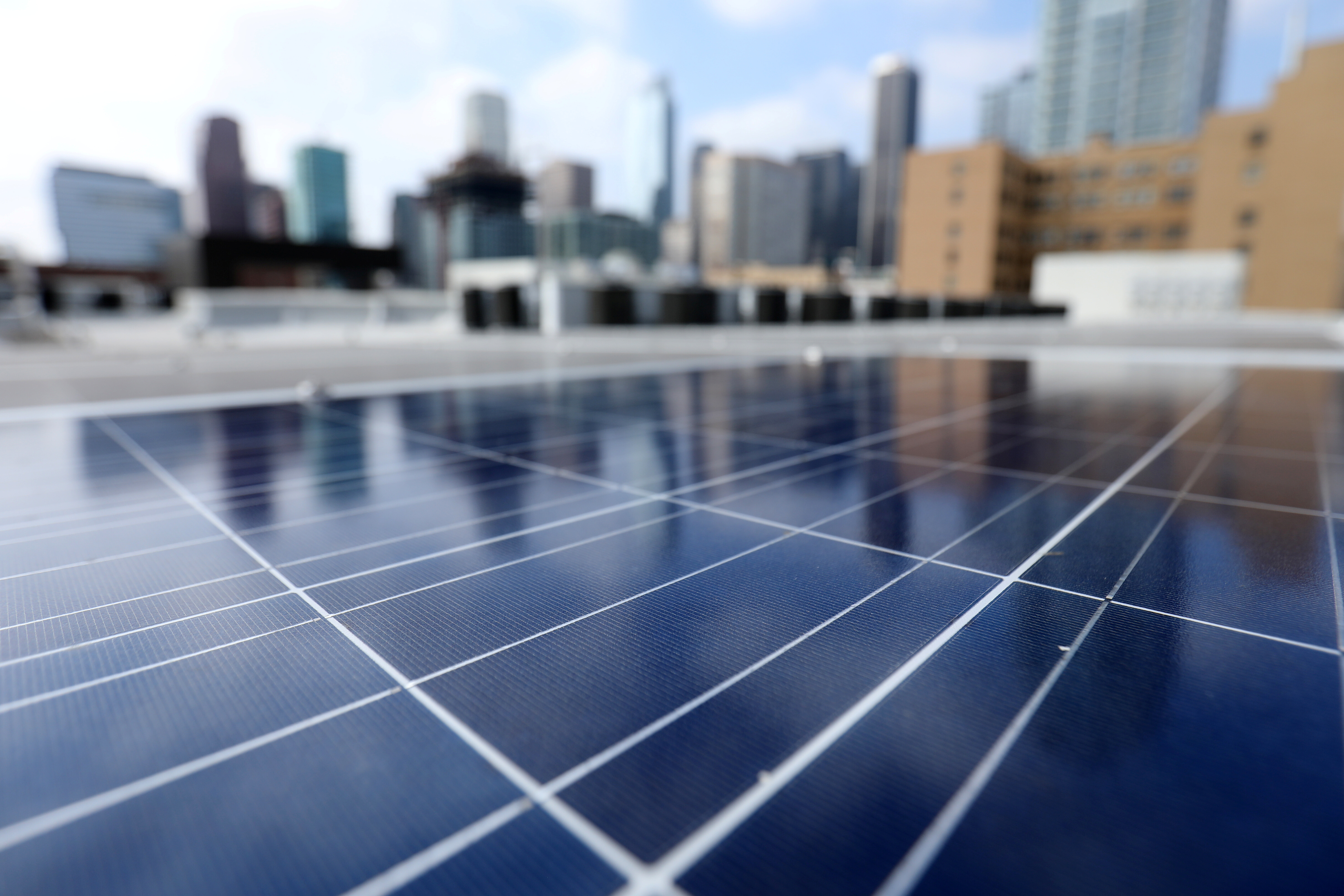Can our competitive natures help reduce our carbon footprints?

One way of thinking about how to approach climate change is to divide the issue into ‘wedges’. One wedge would be to increase renewable energy production, another would be to increase energy efficiency in the electric grid, and a third, to make buildings more energy efficient. Along with these other improvements, changing human behavior is another, very important wedge.
Two families that are demographically similar, living side by side, in similar apartments, can use dramatically different amounts of energy— the difference of which can be attributed to behavioral differences.
Keeping up with the Neighbors
These behavioral differences were demonstrated in a famous psychology experiment that focused on home energy use. The research team, led by two psychologists, Robert Cialdini of Arizona State University and Wesley Schultz of California State University, San Marcos, hung a series of five door hangers with energy-saving messages on several hundred homes in a San Diego suburb in 2004. One hanger encouraged people to “join their neighbors” in conserving energy, one appealed to their self-interest to save money, another called on them to save energy to protect the environment, and a fourth asked them to conserve energy for future generations and the benefit of society. A fifth and final message simply stated that summer is here and it’s a time to save energy with no underlying reason.
The researchers measured the effectiveness of the messages by obtaining meter readings before and after the door hangers were distributed. They found that the last four had minimal effect. But the first, which mentioned the neighbors, produced a significant 10% reduction in home energy usage.
Inspired by the findings, Harvard graduates Alex Laskey and Dan Yates launched Opower, a US-based energy software company, eventually bringing on the Cialdini himself to act as chief scientist to help with what the company calls the largest behavioral study ever.
Opower crunches data from their service areas and compares the energy consumption of each residential customer with that of 100 others in nearby houses or apartments of similar size. Based on their data, they include the comparisons with each customer’s monthly bill, and many customers can also access the information more frequently though their online profiles. The company also sometimes calls residents prior to heat spells to ask if they would reduce their air conditioning use the following day. They do not offer customers monetary incentives to cut back — just the satisfaction of beating the neighbors at something.

Earlier this month, Richard Caperton, Director of National Policy and Partnerships at Opower, visited the World Bank to provide an overview of the communication strategies the company utilizes.
He stated that “people look to their utility for information, and based on extensive customer surveys, they actually want to hear from their utility more.” He said that most people receive around 40 pieces of content each year from their utility but that 75% of those polled would like more frequent contact—when they move, when a change of weather might prompt different energy consumption behaviors, before they receive an unusually high bill, whenever there is a rate change, etc. He continued that, “even in places where a utility has low levels of trust, people still prefer dealing with them rather than a third party.”
The company now has over 95 utilities as customers, 40 million ratepayers in its database, and it “experiments” on as many as 1 million customers at a time in five different countries. It has learned that adding smiley faces to the reports of customers who use energy efficiently helps keep them on track. It has also learned from mistakes; telling good customers that they were more efficient than their neighbors backfired, because many saw it as an excuse to be more wasteful.
OPower’s work has helped residential customers in Vermont and Southern California reduce their home energy use by 1.5 – 3.5 %. At 5 p.m. on the hottest of those days in Glendale, California, the reductions topped 5%. That’s comparable with the average savings the company experienced in its first municipal pilot program in Baltimore in which customers were essentially paid to turn down their ACs during peak times.
During his visit, Caperton, also shared four key elements to messaging on energy use/conservation:
- The message must be technology-neutral.
- The intervention must be cost-effective.
- There must be measurable savings that can be verified.
- The benefits must be shared broadly.
Taken together, it’s clear that any communication on energy use must be easy to understand, not too expensive or difficult to implement, and the benefits must be both scalable and equitable.
Messages that destroy myths—such as the false claim that if you turn down the thermostat at night it will take even more energy to cool it down or heat it up in the morning— can be effective because they do not require much background information or drastic changes in behavior to implement.
Messages that address our “status quo bias,” also referred to as “defaults,” can also be effective if they are cost effective and the benefits are realized easily. It takes much more effort to adopt a new option or behavior, like buying or installing a more energy-efficient appliance, than to keep maintain current behavior. Thus, any time a new energy-saving program requiring human participation is initiated, it should take account of the fact that for every additional step an individual must go through — getting a home energy audit, qualifying for financing, and so on — the participation level goes down.
The benefits to this kind of intervention are clear: one study from 2009, published in the Proceedings of the National Academy of Sciences of the US, suggested that American households — which account for around 38% of U.S. carbon emissions — could save 20% of household direct emissions or 7.4% of US national emissions, with little or no reduction in household well-being by changing which household appliances and objects they use, and how they use them. That’s greater than the total emissions of the country of France! With this in mind, behavior change may turn out to be the most powerful wedge of all. It can it reduce energy consumption by adding up the minute savings of individuals to a massive scale.
This post first appeared on The World Bank People, Spaces, Deliberation Blog.
Publication does not imply endorsement of views by the World Economic Forum.
To keep up with the Agenda subscribe to our weekly newsletter.
Author: Roxanne Bauer is a consultant to the World Bank’s External and Corporate Relations, Operational Communications department (ECROC).
Image: A rooftop garden on a building across the street from the International Covention Centre. REUTERS/Rogan Ward
Don't miss any update on this topic
Create a free account and access your personalized content collection with our latest publications and analyses.
License and Republishing
World Economic Forum articles may be republished in accordance with the Creative Commons Attribution-NonCommercial-NoDerivatives 4.0 International Public License, and in accordance with our Terms of Use.
The views expressed in this article are those of the author alone and not the World Economic Forum.
Stay up to date:
Decarbonizing Energy
Forum Stories newsletter
Bringing you weekly curated insights and analysis on the global issues that matter.
More on Energy TransitionSee all
Noelia Garcia Nebra
November 18, 2025






